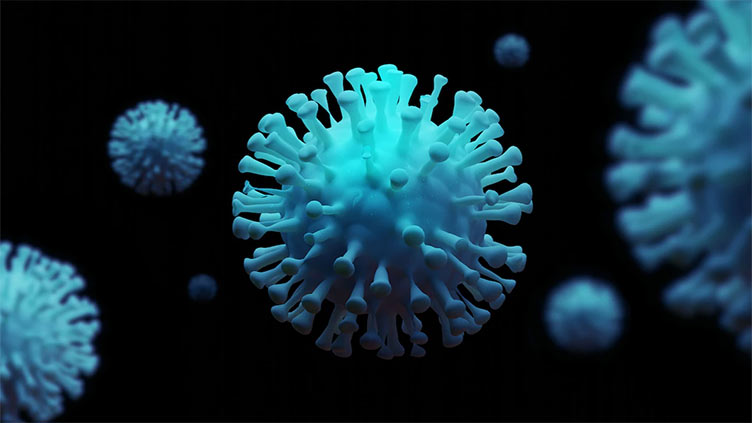Bismol not a proven treatment for Covid-19

Bismol not a proven treatment for Covid-19
(Reuters) - Pepto-Bismol, the familiar pink over-the-counter medicine, might be expected to ease diarrhea symptoms in people with or without Covid-19. But there is no evidence that it has any effect on the SARS-CoV-2 virus or the course of the infection, despite social media claims that Pepto-Bismol “treats” Covid.
An Instagram user shared an image that said: “Pepto Bismol treats Covid and other viruses. They don’t talk about this in the news because big pharma controls the news and big Pharma doesn’t make money from repurposing off patent drugs or natural remedies” (here). More examples of the claim can be seen (here) and (here).
Some of the claims point to an ongoing registered clinical trial titled, “Studies of Covid-19 Patients Treated With Oral Bismuth Subsalicylate (Pepto-Bismol) (SABER-C)” (here), in the Clinicaltrials.gov database hosted by the U.S. National Library of Medicine, which is a part of the National Institutes of Health (NIH). More information on the trial, which is scheduled to be completed in 2023, can be seen (here) and (here).
The claim that “big pharma” is hiding the benefits of Pepto-Bismol as a treatment for Covid-19 is part of a narrative that Covid-19 was manufactured for the pharmaceutical industry as a source of profit, previously debunked by Reuters (here).
Bruce Yacyshyn, an adjunct professor at the University of Cincinnati and co-principal investigator of the Pepto-Bismol clinical trial, told Reuters via email that there was a valid scientific reason to test the medication in the context of Covid-19. But it remained as yet an “unproven treatment” for the virus because “no placebo controlled, randomized clinical trial data is yet available for this drug in this indication.”
WHY PEPTO-BISMOL?
Pepto-Bismol, also known as bismuth subsalicylate (BSS), provides relief of stomach symptoms including nausea, diarrhea and indigestion (here), (here). Studies suggest that BSS also has antimicrobial properties against diarrhea-causing pathogens by restricting bacterial growth or killing the bacteria, which is thought to help clear the microbes from the gut (here).
Although Covid-19 symptoms are largely focused on the respiratory system, gastrointestinal (GI) symptoms are also common and the virus is well-known to infect the gut, with or without symptoms (here), (here), (here),
Yacyshyn said the clinical trial was undertaken to see if BSS could also help treat patients infected with the SARS-CoV-2 virus as the drug has been shown to have a potential role in clearing other enteric (intestinal) viral infections ((here ).
The trial, co-led by Yacyshyn and supported by Procter & Gamble, is not due to be complete until August 31, 2023. In a preliminary report (here), Yacyshyn and colleagues described difficulties recruiting patients for the trial and getting them to complete the entire medication course, including that only one patient at that point had finished the original dosing regimen of 48 BSS tablets. The data being gathered includes the effect on relieving gastric symptoms as well as saliva tests to study whether there is a reduction in virus levels associated with taking BSS.
Even if BSS relieves some GI symptoms, it is not likely to have a significant effect on the course of Covid-19 caused by the SARS-CoV-2 virus, said Thomas Russo, chief of the infectious diseases division in the department of medicine at the University at Buffalo. He noted that even if a substance like Pepto-Bismol was active against the virus, “it wouldn’t really deal with the majority of manifestations that one experiences with Covid,” in the respiratory system and other parts of the body.
Anecdotal evidence of people feeling better after taking a treatment isn’t enough, Russo told Reuters, “because the clinical course of Covid could be quite variable,” as “some people are fortunately asymptomatic and other people have very mild disease and recover rapidly,” while “others unfortunately develop much more severe disease.”
Russo said the “biological plausibility” of Pepto-Bismol being effective against the virus itself “is low” without more solid evidence.
“You need to run properly powered and controlled trials to really be able to assess any potential preventative or therapeutic agent,” Russo said. “Even if you have some testimonials online, they, like many things in medicine, aren’t reliable unless they’re properly assessed.”
VERDICT
No evidence. There is no scientific evidence that Pepto-Bismol provides any benefit as a treatment for COVID-19, and a clinical trial testing that question has not yet produced results.

